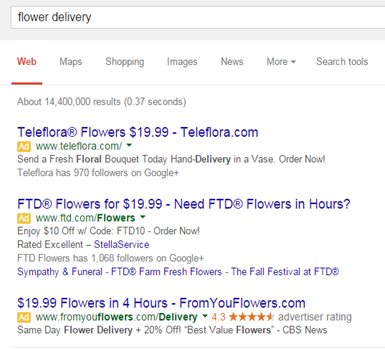[display-name-category]
[post_author]
Face it, we have all been in a bind having depleted all campaign strategies and brainstormed every possible way to get a campaign headed in the right direction.
Think about your major competitors and how much business they are generating online. Don’t fix yourself on the fact that they work with a much higher budget than you can dream of, but more on how you can use this to your advantage. You may find yourself wondering if using competitor brand names as keywords is worth the time and investment.
Well, if you never try it out, you will never know if indeed your business can grow from it.
Get the Testing Started
First of all, imprint this deep into your brain: It will not hurt to test things out. That’s, of course, if you strategically carry them through and acknowledge the pros and cons. Consider implementing the following when using competitors’ brand names as keywords:
Use a Separate Campaign to A/B Test
This approach will quarantine the possibility of low-quality scores that could affect overall metrics. It will also leave your other campaign intact in case you want to go back to your old plan.
Monitor your CPCs & CPAs Carefully
Because quality score tends to be low with competitor brand names as keywords, you might want to control how big of a hole this might be burning in your pocket.
Step It Up
When your eye catches a glimpse of a brand name, the immediate response is to associate it with a product. For a consumer looking for this product, the foreseen behavior is that they will almost always go for the familiar and most trusted name. So, why not use this to your advantage and turn the assumption around. Give your business the opportunity to step in, offer something better, more affordable than the competition, and above all, increase your business exposure by getting its name out there.
Put these points into play when creating the campaign:
Differentiate Your Ads
Do some research and review the type of Ads your competitors are advertising. You don’t want to seem generic or follow the same pattern and get lost in a sea of competition. i.e. All ads promote a $19.99 price point, if I were in a hurry to put in an order at a good price, I would think they are all from the same company.

Compelling Ads Call for USPs
Give the consumer an option by offering the same product as the brand competitor but with a unique selling proposition that can outrank them. Better pricing (include actual numbers, be it percentage or actual price). You can also offer free shipping, quality assurance, money-back guarantee; there are many to choose from if you indeed consider it something that will not affect your ROI.
When it comes to call-to-actions, think out of the box, use phrases that are out of the ordinary and try to avoid the generic “Shop Online Now”, “Call Today”.

Tightly Bundle Your Ad Groups
Organizing Ad Groups by products/services and incorporating competitors’ brand names according to what they offer makes it all easier. For example, at the time of creating ad texts, you will find yourself customizing ads for a particular type of shoe instead of generalizing. On another note, you can also acquire segmented data in order to infer which keyword or product category is performing better, so that in future optimizations, you may decide to weed out the non-performers.
Act with Caution
There are a couple of things that you must take into account when implementing this type of strategy; it could save you a headache later on.
1) Dynamic Keyword Insertion is Not an Option
Forget about using dynamic keyword insertion entirely. You wouldn’t want a header incorporating a trademark name since it could undermine your credibility.
2) Choose Your Battles Wisely
Do you think you outsmarted the competition by benefiting from their brand name as a keyword without a fight? Well, think twice. Keep an eye on your brand name’s CPC, is it on the rise? Your competition will be planning their next move because they too, may have noticed an increase in their brand name keywords’ CPC, and probably thanks to you.
3) Expect a Low-Quality Score
You must keep in mind that you are utilizing keywords that are irrelevant to your business, and that does not sit too well within Google’s norms when evaluating quality score. So on average, you will note a 1/10 quality score. A low-quality score will result in an increase of CPCs unless a decent CTR% is achieved thus giving a little leeway for CPC to drop.
It’s Worth The Try
So, you need a little more business going your way? Are you new to the online marketing world and want an opportunity for exposure? Using your competitors’ brand names as keywords could be the solution you needed. What are you waiting for? Stop losing more time and go ahead, test out if this strategy is beneficial to your business and online marketing success.






